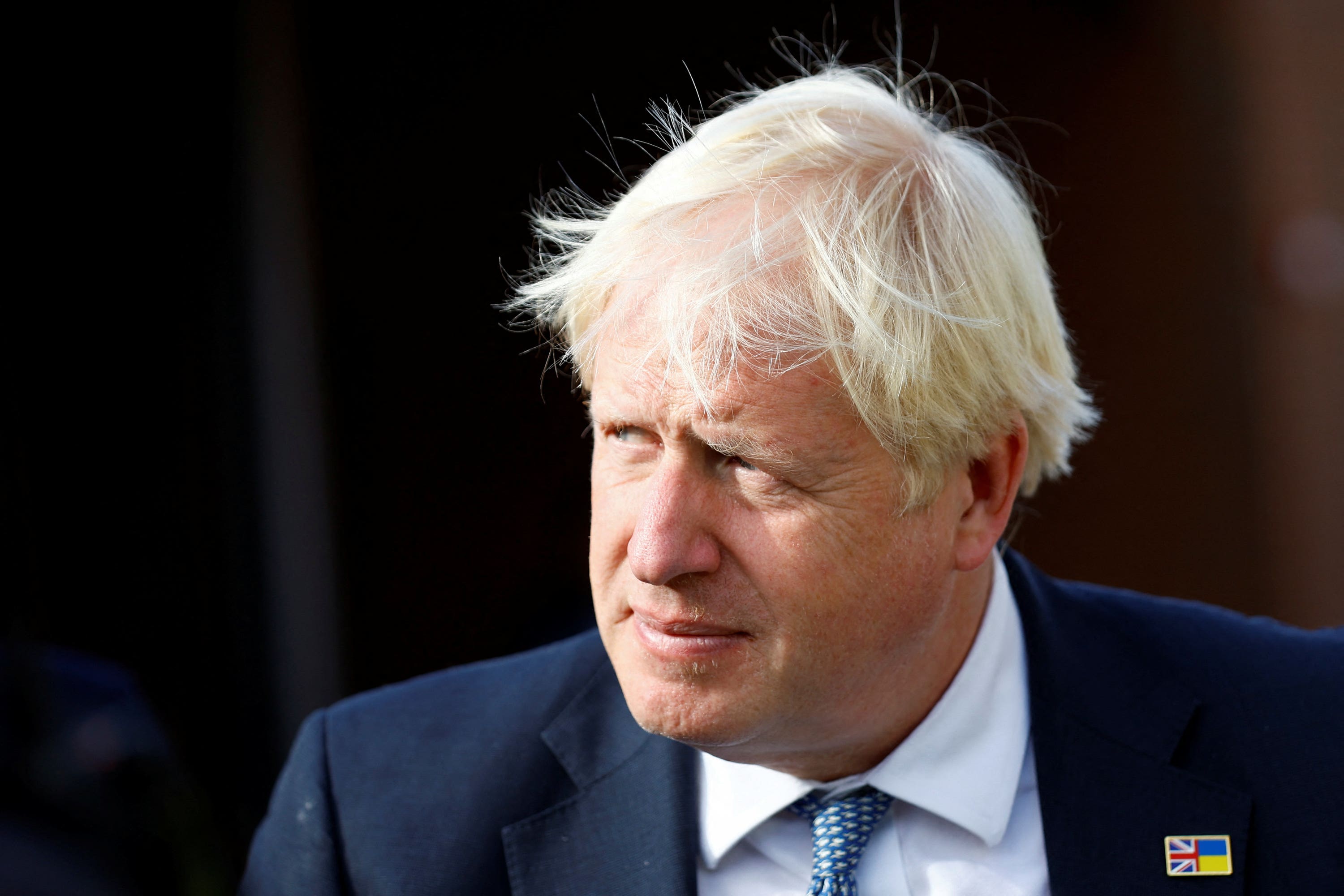Covid-19 bereaved families ‘haven’t had access to Johnson’s phone messages’
It comes as the UK Covid-19 Inquiry is set to begin its second module.

Your support helps us to tell the story
From reproductive rights to climate change to Big Tech, The Independent is on the ground when the story is developing. Whether it's investigating the financials of Elon Musk's pro-Trump PAC or producing our latest documentary, 'The A Word', which shines a light on the American women fighting for reproductive rights, we know how important it is to parse out the facts from the messaging.
At such a critical moment in US history, we need reporters on the ground. Your donation allows us to keep sending journalists to speak to both sides of the story.
The Independent is trusted by Americans across the entire political spectrum. And unlike many other quality news outlets, we choose not to lock Americans out of our reporting and analysis with paywalls. We believe quality journalism should be available to everyone, paid for by those who can afford it.
Your support makes all the difference.Families who lost loved ones during the Covid-19 pandemic have been denied access to “crucial material” given to the public inquiry into the crisis, lawyers have claimed.
Law firm Broudie Jackson Canter, which is representing the Covid-19 Bereaved Families for Justice UK group, said it has not been given access to former prime minister Boris Johnson’s phone messages.
The device he used during key periods of the coronavirus pandemic is expected to contain messages relating to the ordering of three lockdowns in 2020.
The firm said it had to make submissions to the inquiry ahead of its second module without having this information.
We have been forced to make submissions to the inquiry without having the benefit of crucial material, including a key witness statement from Dominic Cummings and access to Boris Johnson’s phone messages during critical stages of the pandemic
Lawyers representing the group have also not been given access to a witness statement from former No 10 adviser Dominic Cummings.
It comes as the second stage of the inquiry is set to begin on Tuesday.
The Government’s work during the crisis will be scrutinised over the coming weeks as the inquiry examines key decision-making in Westminster between January 2020 and February 2022, when the final Covid restrictions in England were lifted.
Nicola Brook, solicitor at Broudie Jackson Canter, said: “It’s been a frustrating lead up to module two.
“We have been forced to make submissions to the inquiry without having the benefit of crucial material, including a key witness statement from Dominic Cummings and access to Boris Johnson’s phone messages during critical stages of the pandemic. We still await these.
“Understandably, the bereaved families are feeling like it’s one rule for the political decision makers and one rule for them.
“Unfortunately, the bereaved will be left watching on the sidelines after all but one of our requests for 23 bereaved witnesses to give evidence in module two were refused.
“They are the ones with direct, first-hand experience of what the Government could and should have done better, and should be at the centre of the inquiry, which will be much poorer without their input.”
Ministers and other government officials are expected to give evidence during the second module of the inquiry, titled Core UK decision-making and political governance.
Other witnesses will include expert advisers, including members of the Scientific Advisory Group for Emergencies (Sage), civil servants and health officials from the NHS, the Department of Health and Social Care and the now defunct Public Health England.
A spokesperson for the inquiry said: “Baroness Hallett has made clear that the experiences of the bereaved, and those most impacted by the pandemic, are central to the work of the inquiry.
“The inquiry has shared nearly 50,000 documents and more than 170 witness statements with the bereaved and other core participants, all of which are shared with all core participants for each module at the same time.
“A small number of witness statements for the module two hearings remain outstanding and these will be provided in the next few days once they have been finalised.
“The chair and the inquiry team have met and consulted with the bereaved, and others who have suffered hardship and loss, wherever possible to inform and develop its work.
“There will be more chances for witnesses to give evidence in later modules, including those specifically looking into the impact of the pandemic.
“Baroness Hallett intends to hear from bereaved families and others where their evidence might shed light on systemic failings that might have avoided harm or loss.
“The scale of the pandemic and the issues the inquiry must look into means the inquiry cannot hear from everyone who may wish to give evidence during its hearings but those who suffered most will be at the heart of proceedings.”